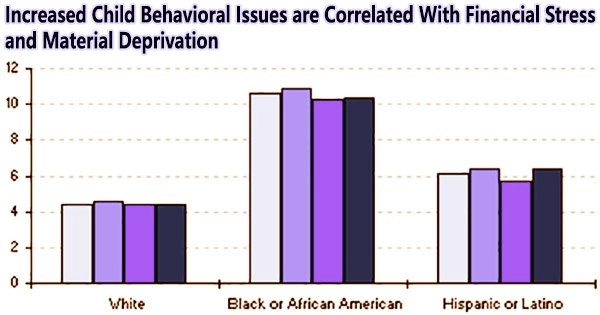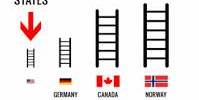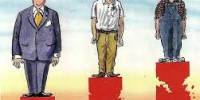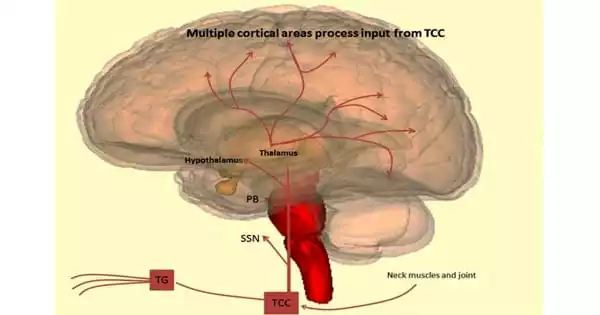According to a recent study undertaken by academics at the Department of Sociology at Trinity College Dublin, exposure to financial stress and material deprivation, rather than decreased household income, are linked to the emergence of child behavioral issues.
The study examined the relationship between three separate economic hardship indicators household income, financial stress, and material deprivation and child behavioral issues.
Researchers discovered that having more externalized behavioral problems in adolescents, such as conduct issues, hyperactivity, and/or inattention, was related to having more financial distress.
In addition, increased material deprivation was associated with internalized behavioral difficulties (e.g. anxiety, depression, being solitary), among primary school-aged boys.
Surprisingly, change in income had no effect on child behavioral difficulties.
These results, in the authors’ opinion, demonstrate that households’ perceptions of “being under financial strain” are more closely related to adolescents’ development and behavioral challenges than changes in income.
While the material repercussions of deprivation have the worst effects on younger children. The research also shows that economic stress can have a negative impact on all households, even those who are not considered to be low income.
Our findings indicate that children react differently depending on the type of household economic change. We found that financial strain and material deprivation affected children’s behavioral outcomes and this change was irrespective of household income. Surprisingly, our findings indicate that change in a household’s income had no meaningful effect on children’s behavioral outcomes.
Ryan Alberto Gibbons
The study was published recently in the Journal of Youth and Adolescence and drew on data from the Growing Up in Ireland study collected in the period before, during and after Ireland’s Great Recession (2011/2012).
Lead author, Ryan Alberto Gibbons, Ph.D. candidate at Trinity’s Sociology Department said, “By drawing on data from the Great Recession in Ireland, a period of great economic fluctuation, we were able to ascertain how changing economic well-being within households affected the behavioral development of children.”
“Our findings indicate that children react differently depending on the type of household economic change. We found that financial strain and material deprivation affected children’s behavioral outcomes and this change was irrespective of household income. Surprisingly, our findings indicate that change in a household’s income had no meaningful effect on children’s behavioral outcomes.”
“The results of our study suggests that more nuanced measures of economic hardship are required in order to accurately understand not just the financial, but also the psycho-social effects of economic hardship on households and their children.”
“This is of particular relevance in the midst of a global cost-of-living crisis, where rising costs are increasing financial strain for households whose incomes are otherwise not low. For example, policy approaches aimed at helping people with their expenses without increasing incomes directly could be an important means of tackling the negative effect of financial hardship on child outcomes.”
















